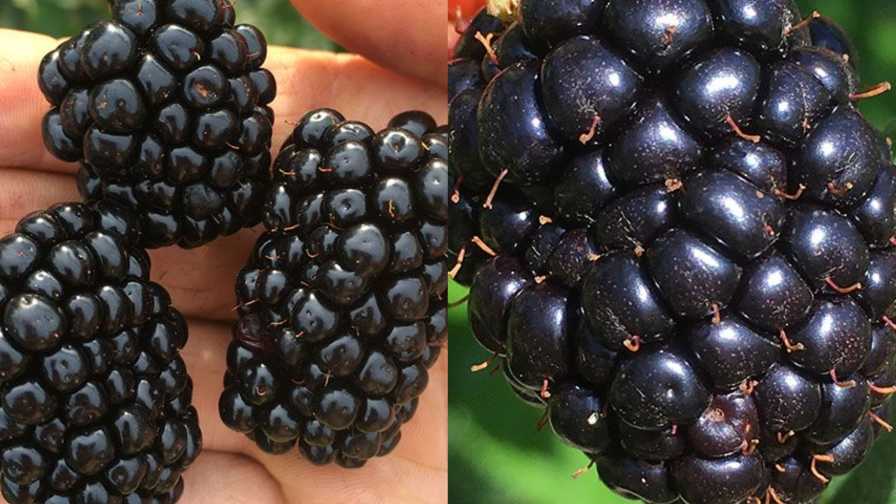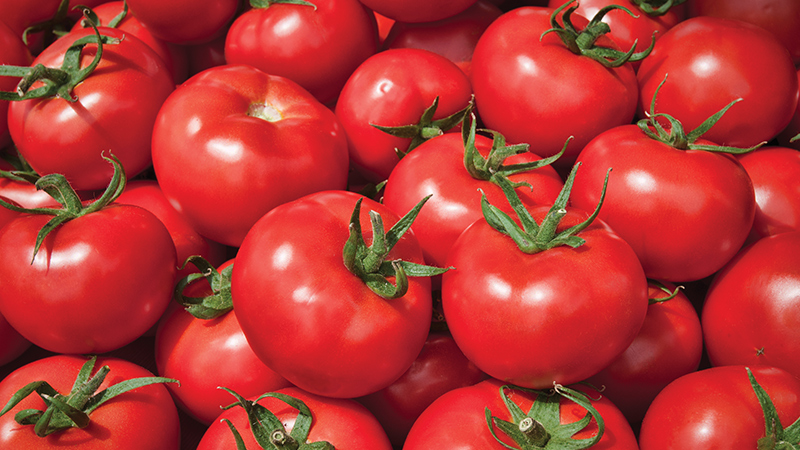The Berry Business in 2020 Is Good, But Not Easy

Peaceful Heritage Nursery in Stanford, KY, offers ‘Prime-Ark’ Freedom (left) and ‘Triple Crown’ blackberry plants.
Photos by Blake Cothron of Peaceful Heritage Nursery
Berry nursery owners, like the growers they supply and almost everyone else in agriculture, face constant labor issues.
“To find help to do the nursery trade is tough, and we depend on our family to do much of the labor,” Phillip Pense, owner and CEO of Pense Nursery in Mountainburg, AR, says. “We must find better ways to manage weed control and look for the most modern equipment to replace what we cannot find in hired labor hands.”
Northwest Plant Co., based in Ferndale, WA, is always looking at ways to improve its bottom line while producing plants of higher quality and improving operational efficiencies, according to General Manager Julie Enfield.
“Making our labor more efficient is a huge focus right now,” she says. “Plant propagation is very labor intensive. As the price of labor continues to increase, so then does the cost of making plants.”
Meanwhile, Hartmann’s Plant Co. in Grand Junction, MI, is emphasizing the continued growth of healthy nursery stock, owner Dan Hartmann says. That includes the transition to growing plants organically.
“We have had requests from organic growers for organic plants, and we want to be able to service these requests and move forward with the organic methods,” Hartmann says.
Adds Pense, “Clean stock to plant for our mother block plants is a must.”
All in all, operating a berry nursery is an “expensive business to run proper,” according to Pense.
“Land has gotten very difficult to get, and the prices for land make going into the business so difficult,” he says. “I don’t know if young people can recover to see a profit because of these great expenses.”
ON THE PLUS SIDE
The COVID-19 pandemic and its lockdowns, in several ways, have boosted sales threefold at Pense Nursery, its owner says. Increased interest is also reported by Hartmann’s, Northwest Plant, and, according to Sales Manager Bernis Ingvaldson, Honeyberry USA in Bagley, MN.
“I think people are frightened of their food source running out and want to be self-sufficient,” Pense says. “Many of the garden centers were shut down, and a lot of folks were just scrambling to find the online nurseries to fill this need. We sold out completely and were forced to buy in from other wholesalers to try to meet the demands.”
Nurseries expect the trend to carry into the new year.
“Most of our growers are selling raspberries into the frozen and processed market, such as IQF (individual quick freezing), puree, and juice,” Enfield says. “At the onset of the pandemic there was a huge and unexpected demand for frozen fruits and vegetables. This helped the market conditions for our growers, and, as a result, we are seeing higher demand for plants for 2021.”
PREFERRED VARIETIES
At the top of the 2021 wish list for Peaceful Heritage Nursery in Stanford, KY, are berry varieties that are resilient to increasing insect pressure and are late blooming to resist late frosts or early warm-ups due to climate change.
“Always choose bare-root plants that are virus indexed,” Peaceful Heritage owner Blake Cothron recommends.
Enfield is eyeing better resistance as well, citing a “particularly bad” 2020 campaign for root rot (Phytophthora rubi) and fruit rot (Botrytis) in raspberries.
“So, tolerance to these diseases was a big deciding factor in variety selection for 2021,” she says. “The caneberry (raspberry and blackberry) industry in the Northwest is 95% for the frozen/process market. Growers increasingly need to be able to compete in a global market. They need the most value from their plantings in terms of yield, fruit quality, and disease tolerance.”
Hartmann adds that growers need varieties that can be harvested by mechanical methods for fresh market sales.
Berry growers, Pense says, need to research the newer varieties being released in terms of flavor, firmness, and storage abilities.
“There are many very good releases of early to mid-season type of blackberry varieties out on the market now,” he says. “It would be nice to have a very late ripening type that was erect and had high quality and good sugar levels.”










